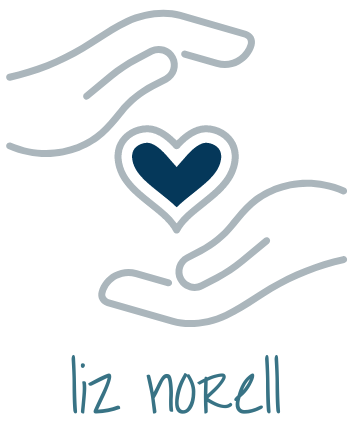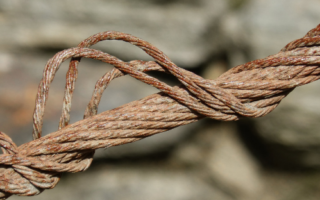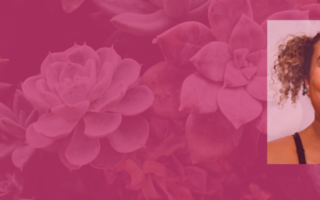Hurt people … hurt people.
I don’t remember when I first heard this saying, but it has become a near-daily mantra. When someone else’s actions sting, when I’m disappointed or hurt or betrayed, I try to remind myself that it’s probably not actually all about me. Have a seat, Ego. Step up to the plate, compassion.
I’m going to write about a recent and especially challenging encounter that has really challenged me to tap into that compassion. The feelings are still raw, and the fallout is unknown. Because of the sensitive nature of all this, I’m going to be vague. I hope you’ll understand that the point of this blog post isn’t to call anyone out, but rather to share what it’s been like processing the emotions that have arisen during this time.
With that caveat in mind, recently, I’ve had an especially challenging opportunity to practice compassion. To put it bluntly, someone whom I respect and care for betrayed me. For the purposes of this blog post, we’ll give that person the adrogynous name of Pat (I mean, who among my generation didn’t love that SNL character?!). As they say, the saddest thing about betrayal is that it doesn’t come — cannot come — from your enemy. The betrayal is deep and incredibly hurtful, obviously … I mean, that’s what betrayal means. I’m still blindsided. I’m confused. I do not understand. My entire sense of who is trustworthy has been shattered.
To sum up: It has sucked.
At first, I was just scared. How would Pat’s betrayal impact the rest of my life? How might it affect my work, my vocation, my life’s passion? Because it could — it could rip away everything I love most about the way I’ve constructed my life, leaving me trying to figure out how to pick up the pieces.
Then, I was genuinely angry. The allegations levied against me run counter to everything about who I am as a person. The people who know you best know exactly where your softest spots are, after all. In this particular case, I was accused of using other people to attain my own goals — not because I genuinely care, but simply as pawns to achieve an agenda. As an Enneagram 2, this was … whew. A lot to digest. If I use people for anything, it’s only to help myself feel valuable and loved. Certainly, it’s not to advance an agenda counter to the desires of others.
Processing anger is really hard for me. I don’t get genuinely angry very often, and when I do, it’s often because someone I love has been hurt, not me.
The brightest light throughout the last week has undoubtedly been the Liz Norell Wolf Pack (as one friend dubbed it) rallying around me. I’ve had so many people check in on me regularly, speak up in full-throated support, and generally surround me with love. So. Much. Love.
If I was feeling a bit gas-light-y around the allegations against me, the LNWP (TM) has convinced me to disregard their veracity.
Time for the compassion to kick in.
Because the thing is, I know a little something about my friend Pat’s life. I know they are struggling. I know life has been turned upside down. Because I’m an empath, I suspect Pat’s feeling a total loss of control/agency around their life. And in moments of greatest emotional weakness, each of us is maximally susceptible to misinformation. We need something — anything — that gives us a clear path forward. When you’re feeling blindsided in one part of your life, especially if you start having other issues (insomnia chief among them), it is So. Incredibly. Hard. to be anything other than reactive in the face of challenge or confusion.
I fully believe that Pat has clung to some bad intel about me, and that the cognitive dissonance it would require for them to hear me out would send them into an even-deeper tailspin. This is a good person. A kind person. A caring person. An unequivocally fair person.
I’m hurt. I’m angry. But more than any of that? I’m worried. I care. I wish I could help — but any effort I might make to do so would only be interpreted (likely) as yet more evidence of my alleged manipulation.
I can’t reach out to Pat and say, “Friend, I know you’re hurting. I’m sorry you’re hurting. I know this is hard for you. I will forgive you. I will still be here for you.” Because, for me, that’s what friendship is.
All I can do is send positive thoughts and kind vibes and compassion Pat’s way, and hope that when all the dust settles and this unnecessary crisis resolves, Pat and I can find our way back to a positive relationship. The trust will take time to rebuild — we cannot just ignore the damage that has been done.
But I know what it means to be hurt. I know what it means to hurt others when you’re feeling battle-scarred. I have found that part of me that understands and empathizes.
Hurt people? They hurt people. But that doesn’t mean they’re bad people. It just means they’re hurt people who are behaving in hurtful ways.
As Brene Brown reminds us, behavior does not equal character. I can say something hurtfully without being a malicious person, just as Pat can believe something untrue about me without being anything other than a person with a broken spirit who is having a tough time regulating their emotions.
I choose to believe these things about Pat. If I’m wrong? Fine.
As Bryan Stevenson writes in the introduction of Just Mercy, “An absence of compassion can corrupt the decency of a community, a state, a nation. Fear and anger can make us vindictive and abusive, unjust and unfair, until we all suffer from the absence of mercy and we condemn ourselves as much as we victimize others. … I believe it’s necessary to recognize that we all need mercy, we all need justice, and — perhaps — we all need some measure of unmerited grace.”
Compassion is just that — extending grace and mercy to others, while simultaneously refusing to condemn ourselves with fear and anger.
I choose compassion.




